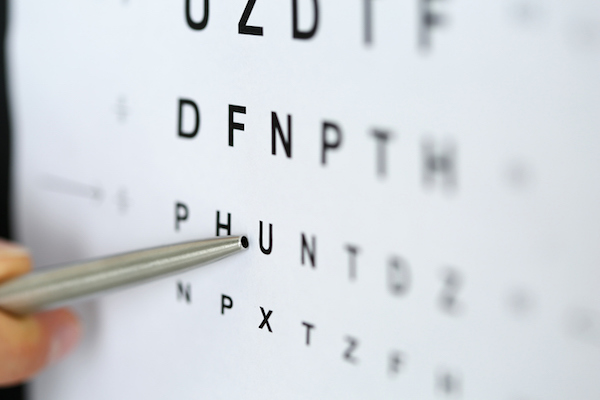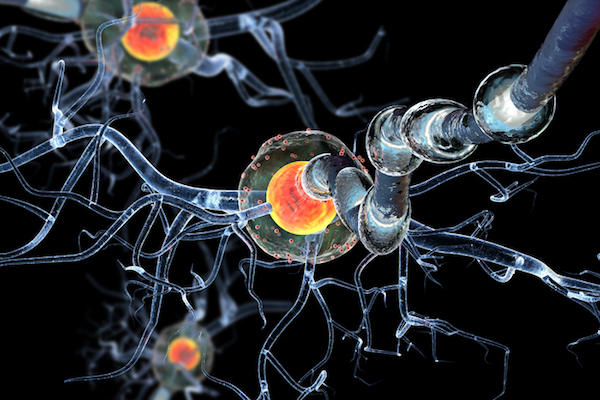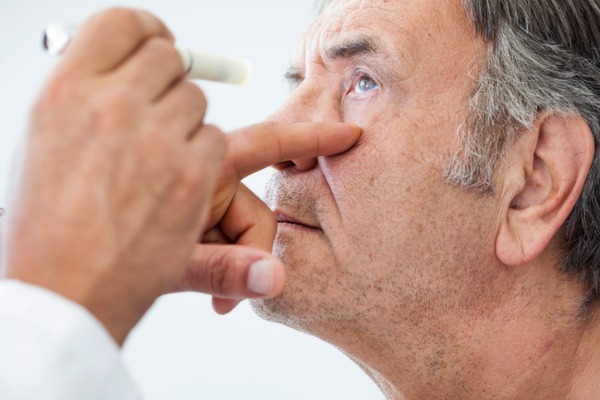
Emotional Reactions to a Glaucoma Diagnosis
Glaucoma may very well affect your vision, but you can still keep other aspects of your health intact
We’ve all heard of glaucoma. It’s the harmful eye disease that causes damage to the optic nerve. If it goes untreated, it can lead to many surprises including peripheral vision loss, and even blindness. Early detection and treatment is the best way to prevent glaucoma, which is all the more reason to be mindful of your annual eye exam.
I covered the disease extensively in Part One and Part Two of my Preventing Vision Loss From Glaucoma series.
As an eye care provider, I’ve seen the entire spectrum of glaucoma presentations. I can equip myself with as much information as possible, but every affected patient is unique and individualized care is required for the best possible outcome. The goal of glaucoma management is vision preservation. Getting the right results takes a team approach because there are no symptoms in the early stages of the disease.
As I’ve stated before, it’s very sad to see the effects of glaucoma. Certain patients don’t attend regular follow-ups, but come back years later when their vision doesn’t seem right. It could be too late at this point, but it doesn’t have to be that way. Communication and care is the key to prevention and if proactive measures are taken, desired results can be achieved.
Another Take on Glaucoma Diagnosis:
In browsing through my list of medical journals, I recently came across a study called “Life Experiences of Patients with Glaucoma: A Phenomenological Study.” This particular study examined seven emotional themes which most glaucoma patients experience. In a nutshell, it’s basically a list of ways in which patients cope with their diagnosis. I found the whole thing interesting because even though each individual is different, most people face hardship in similar ways. On top of that, I’ve seen a lot of this play out in real life and people need to find encouragement wherever they can.
The following are the seven emotional themes from the study. I followed up the themes with some of my own thoughts:
- Confirming the Diagnosis – When going through the process of diagnosis, multiple objective tests are performed. This is because we need to be absolutely positive of what we’re dealing with. This is very important because I’ve had several patients diagnosed with glaucoma and they actually DID NOT have the disease. Furthermore, it’s important to encourage additional opinions when necessary.
- Gratitude to God – A glaucoma diagnosis isn’t a death sentence (that’s one way to look at it). It does indeed affect vision, but other aspects of health can stay intact. However, dealing with vision loss is certainly life changing. That said, patients should draw strength from wherever possible to handle this change.
- Feelings of Contentment – The more information the patient has, the better decisions he/she can make. It’s critical to explain to patients exactly what glaucoma is, how it was diagnosed, and the plan of action. The right plan of action is most important. It should create a team approach moving forward because it’s better to have support when facing critical issues.
- Coping with the Diagnosis – Different people take bad news in different ways, but as soon as we can come to an agreement, the best possible plan of action can be put in place.
- Daily Life Management – Avoiding further decline should now be the goal. That said, healthy living is still option after a glaucoma diagnosis. Eye health can still be optimized through UV protection, increased anti-oxidant rich diet (dark leafy green veggies, omega 3 foods like wild caught salmon, etc.) and regular exercise to maintain proper weight.
- Emotional Reaction to Going Blind – If vision starts to decline (even with treatment), it’s important to discuss low vision services such as magnifying lenses, prism glasses, and/or the use of a seeing eye dog. It’s important to know there is still help, even if vision declines all the way to blindness.
- Educating Friends & Family – This may be the most important thing for sufferers. When diagnosed, patients tend to urge family and friends to get checked by their eye doctor. It’s a sad reality, but some people just don’t get moving until they actually see devastating effects take place. I’m guilty of this myself.
In conclusion, a diagnosis of glaucoma is certainly a frightening experience. Often times, the way a doctor explains the condition to a patient will make a huge difference in the plan of action. It’s important to remind a patient that glaucoma isn’t the end of the world. The disease is treatable, and teamwork during treatment is the best way to maintain positivity.







